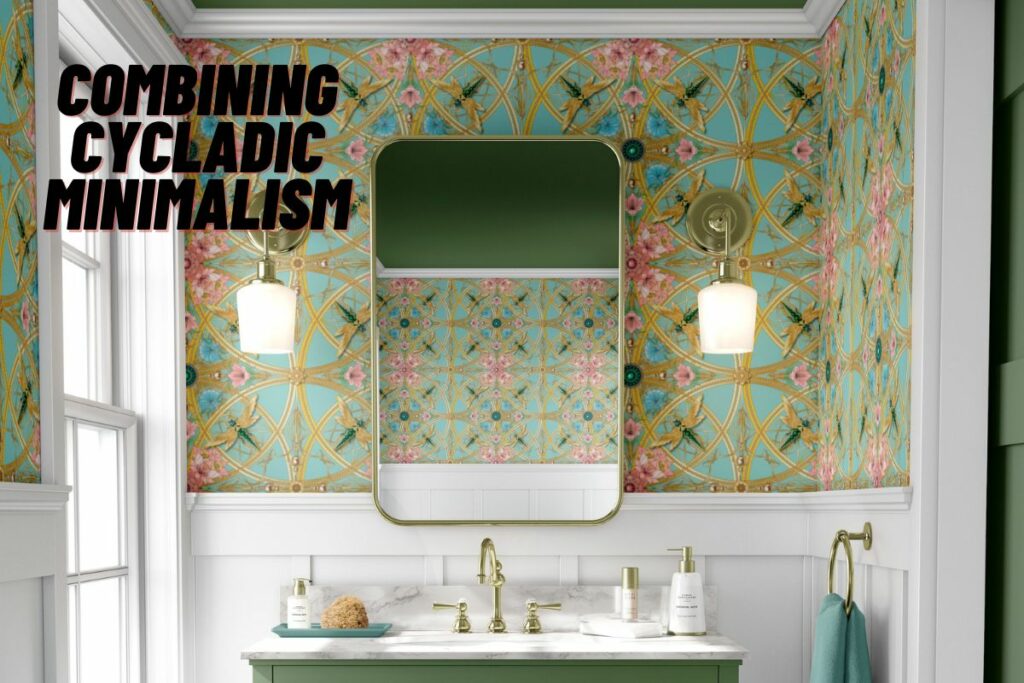Weaver Maria Sigma is someone whose creations we have long admired. Her textiles, which include rugs, throws, pillows, and wall hangings, are handwoven in her East London studio primarily from undyed wool and alpaca. She says, “Nature is lovely just the way it is, and I want to think that this also makes my art wonderful.”
In addition to wool’s inherent sustainability qualities (easily maintained, long-life, non-allergic, odour resistant, renewable, and biodegradable), Maria values its transformability: “The result could change completely from how it appears on the loom depending on the setup of the warp, the weave pattern, and the finishing of the cloth. It seemed to have a life of its own.
Maria gained extensive, scientific knowledge of fabrics, dyes, and processes while studying textile conservation in Greece. When the session was over, she thought “the creative aspect” was missing, so she looked for a practical, traditional weaving seminar. “It included everything I enjoyed, including creativity, arithmetic, and using tools and machines. I was in love with it since it was both practical and artistic.
To pursue a second degree in textile design with a focus on hand-weaving, Maria relocated to London. She was awarded the Cockpit Arts Clothworkers’ Foundation Award upon graduation, allowing weavers to pursue a career in textiles.
Along with business guidance and training, she was provided access to looms and studio space. She adds, “That was the beginning of my practice.” She was able to purchase her loom and set up her studio in 2017—two years later—with help from The Princes Trust.
Many of Maria’s works are titled after figures from Greek mythology, which she attributes to her Greek origin. For instance, her Ariadne throw is named after the Odyssey character who helped her lover by using a piece of thread. “A handwoven blanket/throw made with natural undyed pure new British wool in shades of white and grey with hand-crocheted Aegean-blue edges, in a textured weaving-lace diamond pattern, which combines the Cycladic minimalism with the purity of the British landscape,” is how her website describes the item.
Her sources of inspiration are frequently more nebulous. “I usually start from the materials and weaving techniques, with an abstract topic in my head—a feeling most of the time—and then, based on my present state of mind, the picture and the context will follow,” she says.
The majority of Maria’s works were custom-made or one-off commissioned up until recently. She is currently providing customers with a condensed, “ready-to-go” assortment of goods. She explains, “I particularly like creating work that investigates a new idea, technique, or material.
These items, all of which are either one-of-a-kind or limited editions, make up my ready-to-go collection. I made them because I needed to be creative.
Because weaving is a labour-intensive technique, it can take three to eight days to set up the loom and several weeks to create a single item, depending on its size and pattern complexity. Here is where sampling is useful: It’s an essential component of my profession, claims Maria.
Working on a tiny scale is a quick approach to test ideas without wasting time or materials because weaving is a very slow process and difficult to envisage. Additionally, it allows me the freedom to test weaving and finishing methods and materials that I’ve been considering for a while.
The New Craftsmen and Flow Gallery in London, as well as Waikiki, a concept store on the Greek island of Andros (where Maria will be co-hosting a weaving/cooking retreat later this year), now carry Maria’s textiles. She still believes her work is far from flawless despite this. “I’m always learning, and that’s what I love about it.
There is a seemingly endless amount of room for experimentation and research in weaving. There are times when I might keep using the same methods, materials, or patterns, and there are times when I start looking for something fresh. You need a change now and then, I suppose, like anything else in life.
Follow unitedfact.com for more latest updates.

